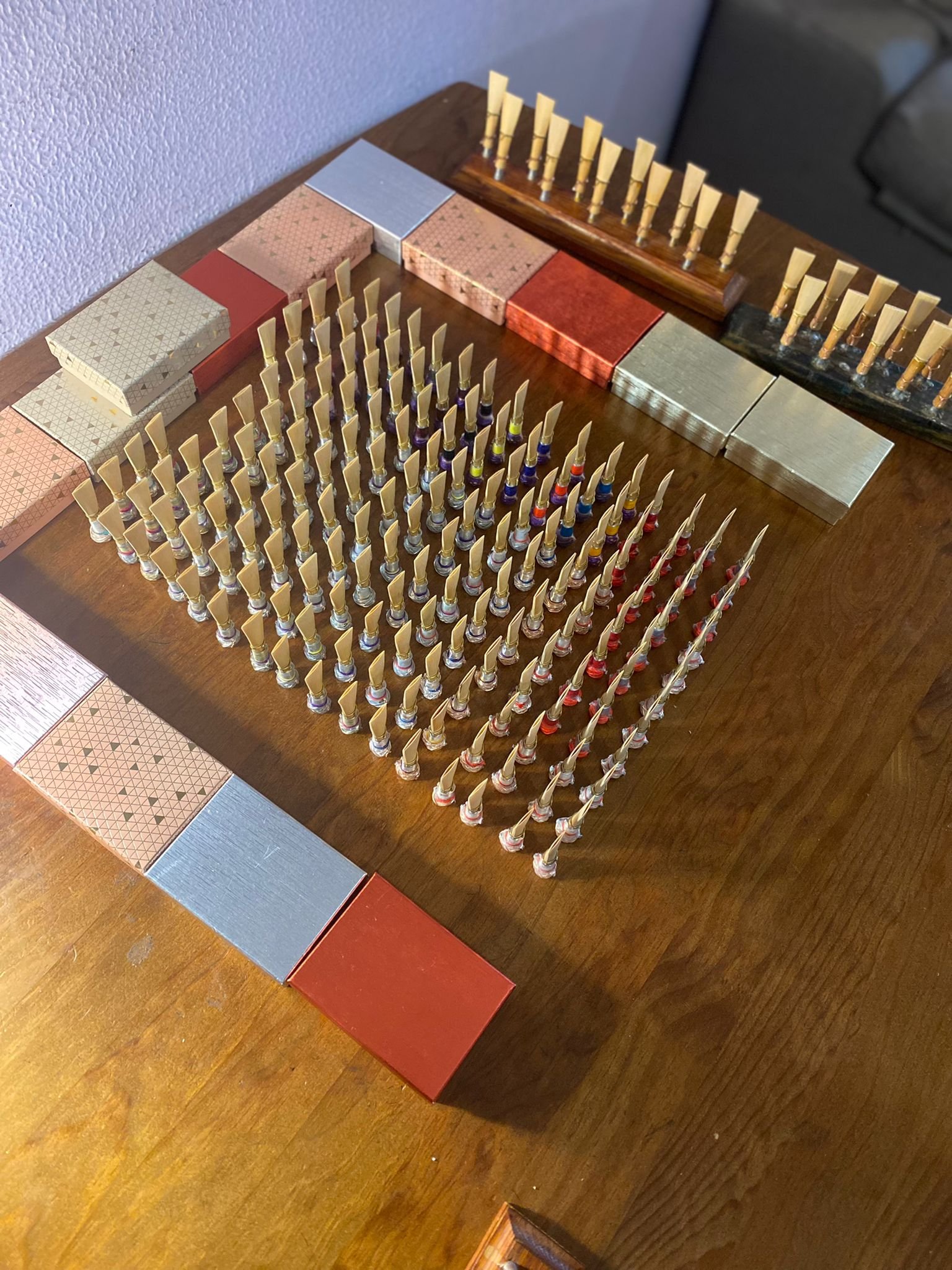Stevesreeds

Our story
Steve Harriswangler has been making bassoon reeds professionally for 30 years, as a bassoonist almost 40. Son of a bassoonist and college professor, Frank Wangler, he has had a unique access to a great wealth of reed making information. Steve holds a BM and MM from The Juilliard School, where he was a student of Stephen Maxym.
As Principal Bassoonist of the Orquesta Sinfónica de Galicia, (Symphonic Orchestra of Galicia), since 1994, he has found that making a special reed for each situation makes work a pleasure and much more relaxed.
Steve likes to experiement with reed design and shapes because he believes that there is not just one way to do a job well.
Our philosophy
Reed making prime directive, “don’t push a reed to evolve before its natural process of settling is complete.”
Most reed literature includes information about the “breaking in“ process. There are many reeds makers that can churn out large orders and I am not comfortable with this. From my experience, my worst reeds were made in a hurry, so I adjust my reeds through the settling process so you don’t have to. Any available reed on the page is already made and “tipped”with the tip machine. A new reed will be hand adjusted to your order and broken in and mostly “settled” to play “out of the box”. With over 30 years of orchestral experience, I never play a green, unfinished reed, why should you have to? The testing and adjusting phase is the most challenging and complicated for every bassoonist, most people can assemble a good looking reed.
Think of a reed maker as a sculptor finding the figure that is already present in the stone. I test several reeds to match a specific order.
Hand picked cane and high quality materials make our bassoon reeds extremely versatile. Tipped, measured for hardness, and assembled with a variety of different materials they play any specific range you require. Very little finishing is necessary.
As a personal belief, you can get anything you want out of any reed shape, it’s just a matter of balance and scrape. That being said, some shapes lend themselves more quickly to certain attributes. The idea being, less time to arrive at a certain sound or attribute for your needs. Some reed shapes lend themselves toward a better high range, a better low range, darker diffuse, darker focused, brighter tone, faster response and articulation, etc.
Many times we look to somehow change our instrument or components, the instrument itself, a bocal or some added attachment. None of these changes are a bad idea, but we have so much that we can accomplish by just changing the reed. We mentioned changing reed shape. Our most important improvement has been with wire wraps for the head of the reed. This greatly improves resonance and projection by creating a solid mass at the bass of the reed to carry vibrations from the reed into the bocal.
All professional reeds generally measure 58mm in length, 30mm for the tube, and usually 28mm from the cut to the tip of the blade ( some reeds, budget or student reeds can be as short as 26mm and can have 28mm tubes and are marked). Reeds being on organic product, there may be some slight variation, including tip width. K shape reeds can be wider without as much sagging in the sound, an M shape can be narrower at the tip without losing depth of sound. (Surface area).
1)Professional Wire Wrapped reed, 25€ all shapes using four binding wires of Brass, NiChrome, Copper and Galvanized Steel for better projection and resonance with additional wire head wrap for added resonance and massive projection.
The wire head creates a solid mass for a firmer contact with the bocal from the vibrating part of the reed, 25€. Wires for wrap may vary, but is generally 0.6-0.64 thickness. Wires used can vary from NickelSilver, NiChrome, Copper, Brass, Bronze, SilverPlated Copper and whatever metal inspires. Some metals will darken over time but will not change the quality of the reed.
2)Professional reed, all shapes available, 20€, binding wires are Brass 0.71mm , NiChrome 0.64mm, Copper 0.9mm and Galvanized Steel 0.8mm for better projection and resonance.
3)Basic Pro Reed, 19€ only in SR4 shape, Only brass binding wires 0.64mm, with a steel butt wire 0.6mm. ( this reed is made exactly the same way as the Pro SR4, without the custom wire).





